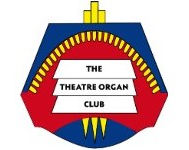H Robinson Cleaver was born Harold Arthur Robinson in Eckington, Derbyshire on May 25th 1906 and by the age of nine he was organist at Bramley Parish Church before taking his first cinema organ position at the Albert Hall in Sheffield and commencing studies at the Royal Manchester College of Music where he gained his ARCO degree at the age of 21.
From Sheffield he moved to the La Scala cinema in Hyde, Greater Manchester, and it was here that a certain Molly Bailey, who was the pianist, first caught his eye, becoming Mrs Robinson (Cleaver) in 1930.
It was at the Piccadilly Theatre in Manchester that Robbie first got the idea of adding 'Cleaver' to his name after seeing the large, and then well known, department store 'Robinson and Cleaver' opposite the Piccadilly.
After four and a half years at the Piccadilly, Robbie moved to his first unit organ position on the Christie organ of the Lonsdale Cinema in Carlisle for the Sidney Bacon circuit, and it was from here that he was scheduled to make his first broadcast on BBC North. He had chosen the signature tune 'John Peel' but unfortunately for Robbie, he was transferred to the Regal at Bexleyheath before this could happen and both the broadcast and the signature tune were left for his successor, Joseph Seal.
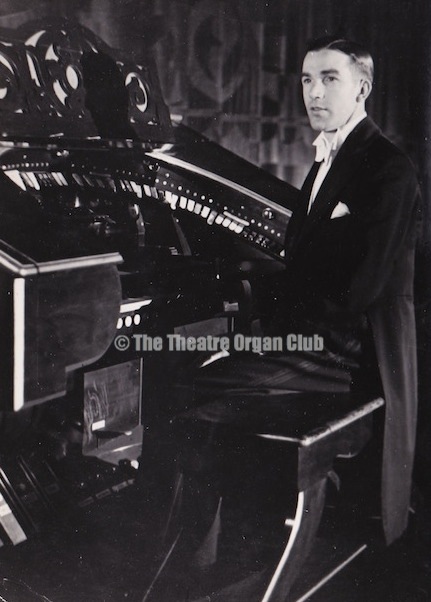
He arrived at Bexleyheath in late 1935 and began broadcasting weekly from January of 1936, cutting two 78rpm discs for the Octacros label before signing a recording contract with Parlophone, which resulted in twelve sides being released. It was here that Molly suggested a new signature tune, an Eddie Cantor hit entitled 'An Earful of Music' and this remained Robbie's signature tune for the rest of his career.
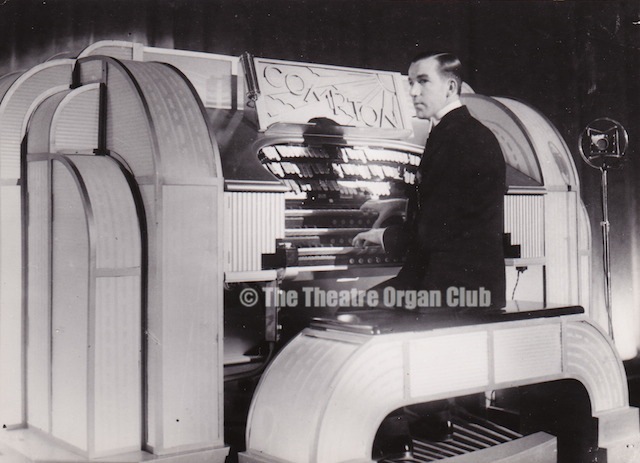
The Regal was subsequently taken over by Union Cinemas, which meant touring the circuit. Union's circuit grew so rapidly that on March 22nd 1937 two new cinemas were opened on the same day and as even the Musical Director, Harold Ramsay, couldn't be in two places at once, Robbie was chosen to do the honours at Barnsley whilst Ramsay officiated at Chatham, however Ramsay's performance was broadcast to the audience at Barnsley, so there was no escape.
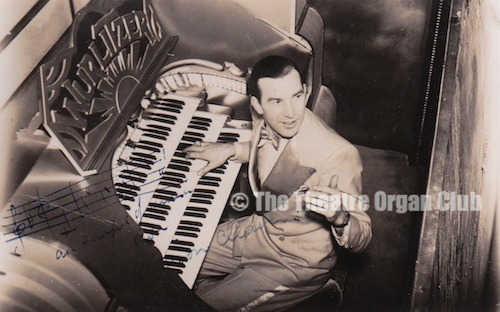
Robbie joined Granada Theatres in early 1938 and made his first broadcast from Clapham Junction Granada before being chosen to play for the opening of the new theatre at Welling in Kent, just up the road from Bexleyheath. This became his base theatre and he and Molly made their home in the area, although working for Granada also meant touring the circuit.
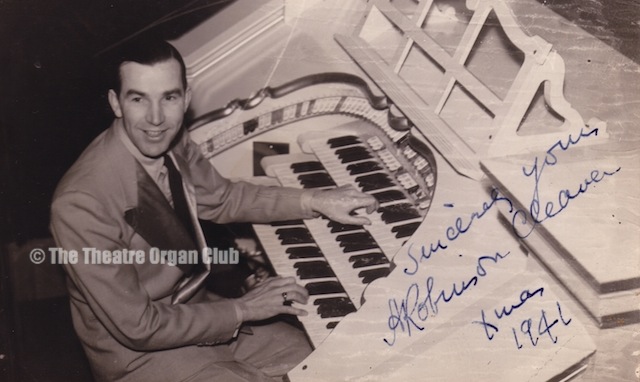
Recording and broadcasting continued at Welling and later at Tooting Granada, after which he recorded the Compton organ at EMI Abbey Road studio, both solo and in combination with other soloists, orchestras and dance bands, most notably with Billy Thorburn's band under the title 'The Organ, The Danceband and Me' as well as session work, often un-named, both for EMI and Decca using their Wurlitzer organ at Hampstead.
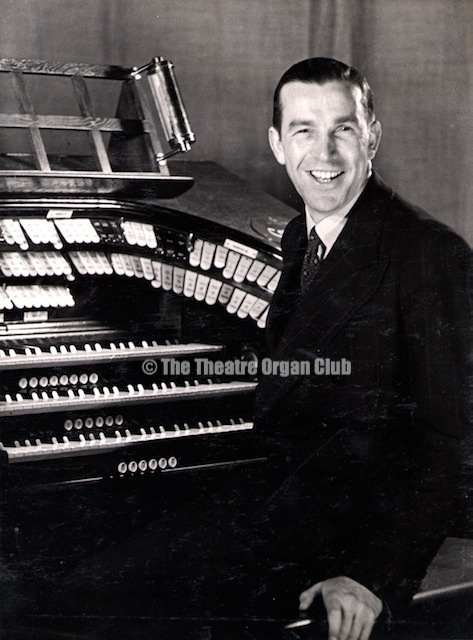
Abbey Road Studio
The Cleavers did much for local charities, one such was funding the building of the local library and, during WWII, they toured the country raising money for the Spitfire Fund.
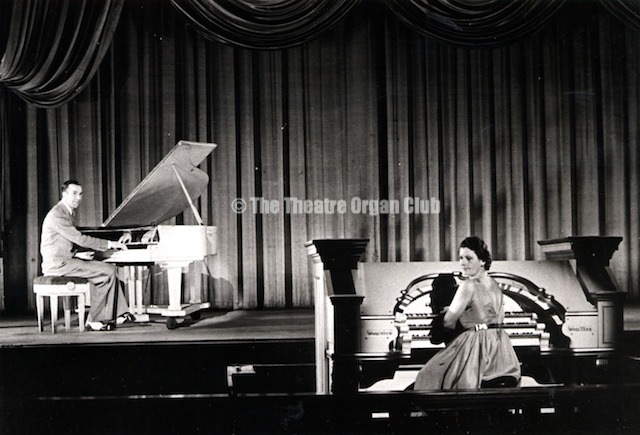
He and Molly were the first organists to appear on national TV in July 1946.
Robbie stayed with Granada until the cuts of 1958, but not one to remain idle formed a new music publishing company and produced weekly shows and Sunday concerts at Teignmouth and Sunday concerts at the Odeon Llandudno. Then came a ten-year stint playing summer seasons at Bognor Regis and Scarborough with winters at Richmond Sportsdrome. He then promoted summer shows at Scarborough and Llandudno, usually taking part in weekly concerts on the Christie organ in the Odeon theatre in Llandudno.
Robbie continued to broadcast regularly for the BBC after his departure from Granada, but still using either Tooting or the BBC Theatre Organ, amongst others, as well as continuing to appear up and down the country playing pipe organs in cinemas and electric organs where there was no pipe organ.
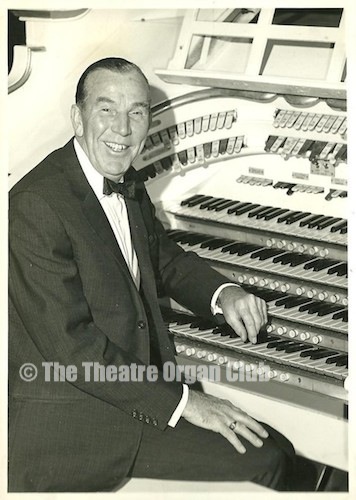
After Molly's death in 1977, Robbie moved to Llandudno where he died on July 23rd 1987.
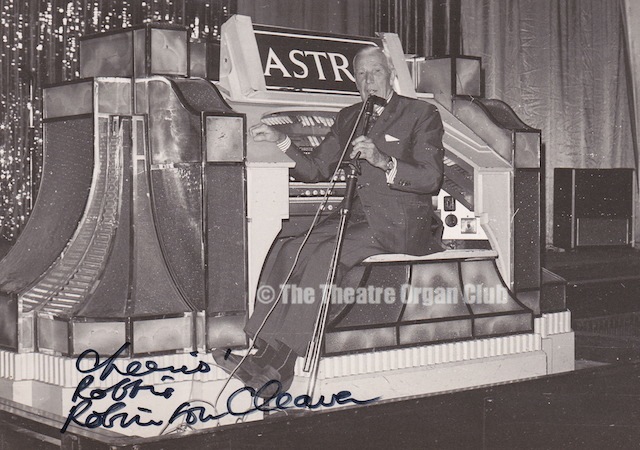
It must be hard in this day and age to comprehend the popularity of the cinema organ in the inter-war years when, at the least, the organists were local celebrities, and those at the top of the profession were national broadcasting stars with the same status as the big dance bands and light orchestras, in short, the pop stars of the day, and H Robinson Cleaver was one such who remained at the top throughout his career.
